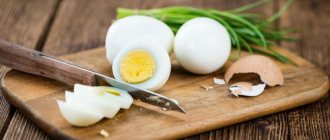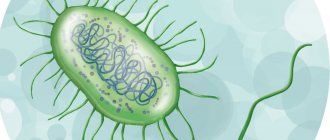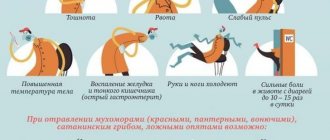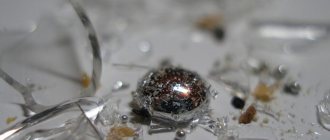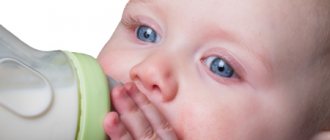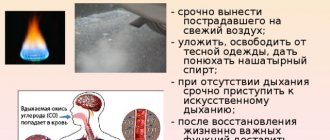Food poisoning is an unpleasant health problem for humans, from which no one is 100 percent immune. Vegetables, berries or fruits treated with chemicals to combat insects can provoke intoxication. In addition, products can be contaminated with harmful microbes and, when consumed, become a cause of intoxication and intestinal infection. Separately, it is worth mentioning mushroom poisoning. A child can become poisoned while exploring the world. Curious children taste everything that interests them: beautiful berries, flowers, liquids in attractive bright packaging, colored medicinal capsules.
Doctors consider alcohol poisoning to be the second most common cause of poisoning in adults.
Since poisoning is not uncommon in our lives, many questions often arise about this. How to deal with intoxication? What to eat after poisoning? We will answer these and other questions below, but now let’s figure out “where legs grow from.”
Diet after poisoning
What can you eat and drink during and after poisoning? You should not eat food on the first day. It is necessary to drink water and special saline solutions frequently. At the first signs of poisoning, it is recommended to take natural sorbents, such as Filtrum. The filter helps remove pathogenic bacteria and bacterial toxins from the body.
Filtrum is a quick remedy for the treatment of diarrhea of any etiology (infectious diarrhea - loperamide is contraindicated, parasitic or rotavirus infection - antibiotics are useless, activated carbon is ineffective)
What can you eat next?
Summary table of nutrition after poisoning
| 1 day | Day 2 | Day 3 | 4 day | 5 day |
| you can't eat anything | vegetable broth | vegetable broth | chicken bouillon | chicken bouillon |
| vegetable puree | vegetable puree | vegetable casserole | vegetable casserole | |
| crackers | crackers | fish | rice porrige | |
| rice porrige | crackers | crackers | ||
| rice porrige | boiled fish |
On the second day it is recommended:
- 200 ml vegetable broth;
- 2-3 crackers;
- 100 ml liquid vegetable puree.
The amount of liquid is up to 2 liters. You can drink boiled water, rosehip decoction, alkaline mineral waters without gas, saline pharmaceutical solutions.
On the third day, you can introduce cereals into your diet.
Proper volume of products:
- 200 ml vegetable broth;
- 300 g of rice porridge, liquid and boiled in water;
- crackers (up to 4 pcs.) and biscuits (2-3 pcs.).
Starting from the fourth day, the volume and list of products expands, it is possible to add chicken broth and lean fish (pike perch).
Daily ration:
- 200 g vegetable casserole with semolina (without eggs),
- 100-150 ml of chicken broth (bring to a boil for the first time and drain the broth, pour water over the chicken again and prepare the dish);
- 100 g boiled fish;
- crackers (4-5 pcs.) and biscuits (5-6 pcs.);
When preparing fish and chicken broth, do not add vegetables or spices, just add a little salt.
On the fifth day, it is necessary to continue expanding the diet. Recommended dishes include chicken, rice, and cottage cheese:
- 300-400 ml chicken broth with chicken meatballs;
- 200-300 g boiled rice;
- 200-300 g casserole or cottage cheese soufflé (without eggs);
- crackers up to 5-6 pcs.
Simple recipes and recommended products
Against the backdrop of recovery, the menu is gradually expanding. It is recommended to include meat broths, especially bone broths, oatmeal, and baked poultry (without skin) in your diet. The main thing is to eat in small portions. Such products are useful due to their neutral taste, nutritional value and content of substances that will help you recover faster. But what is most important is the source of protein, which is used to restore the body. In the healing process, restoration of the intestinal microbiome is of great importance, therefore it is recommended to include in the diet foods that help restore microbial balance. Healthy foods include yogurt, sauerkraut, etc.
Drinks to prevent dehydration
Vomiting and diarrhea are inevitable accompaniments of poisoning, even alcoholic poisoning. As a result, not only liquid is lost, but also minerals. Oral rehydration solutions may be required to prevent and treat dehydration. But it is also acceptable to drink tea, especially herbal tea, compotes, fruit drinks, and mineral water. For example, peppermint tea will help not only cope with dehydration, but also relieve an upset stomach.
List of prohibited products
Food poisoning is associated with inflammation and irritation of the digestive tract. Therefore, the diet is composed of those that do not cause excessive stimulation of the stomach and do not have an irritating effect. There are several food groups that need to be excluded during illness:
- Dairy
Not all dairy products are beneficial during the recovery phase. For example, cheeses and full-fat milk can cause irritation of the stomach walls and aggravate symptoms.
- Bold
Fried, fatty, fast food, as well as other foods with a high percentage of fat can cause worsening diarrhea, as well as abdominal pain.
- Acute
Spicy foods and marinades are products that cause severe stomach irritation, which can lead to upset and worsening symptoms.
- Foods that cause bloating
Fermentable carbohydrates are the main enemy of well-being during recovery. Products containing them lead to frequent bloating, especially if there are contributing factors. For example, irritable bowel syndrome. Therefore, you need to exclude beans, cabbage, onions, garlic, etc. from your diet.
What drinks should you avoid?
To prevent and treat dehydration, you must strictly adhere to the drinking regime. But not all liquids and drinks are useful; some of them can cause serious consequences and complications. During the stages of recovery, eliminate or at least reduce the use of:
- coffee;
- sweet sodas;
- milk;
- tea with caffeine.
Abuse of such drinks is a cause of complications. Instead of replenishing your electrolytes, dehydration may only get worse. As for milk, some people develop lactose intolerance due to intestinal infections. And when they are consumed, signs of intolerance form: nausea, flatulence, etc.
Warning signs
Mild to moderate food poisoning can be treated with over-the-counter treatments. But if the following symptoms appear, you should seek medical help:
- blood in the stool;
- symptoms of dehydration: rare urination, dry mouth, dizziness;
- diarrhea that lasts more than three days;
- temperature increase over 39º C;
- repeated vomiting that lasts more than a day.
When such symptoms appear, additional fluid administration is necessary, but vomiting and diarrhea interfere with its absorption.
Within the walls of the hospital, the doctor will prescribe treatment that stops vomiting and diarrhea. If indicated, antibiotics are prescribed that target the cause of intestinal infections. Finally
The causes of intestinal infections and poisoning can be not only bacteria, but also viruses. But regardless of this, measures must be taken. For example, a diet after drinking alcohol also implies adherence to a drinking regime; food should be gentle and not irritating. But if a single alarming symptom appears, even if it seems to you that the crisis has passed and you are recovering, you need to seek medical help and begin treatment that will help avoid complications.
Text: Yulia Lapushkina.
Nutrition rules
After poisoning, you need to eat up to 7 times a day in the first days, in very small portions. Subsequently, the frequency of meals is reduced to 3-4, and the daily and portion volume is gradually increased. The temperature of the food is room temperature or warm; cold or hot food is not allowed, as irritation or damage to the mucous membrane, which is still very vulnerable during this period, is possible.
In no case should you overeat; it is important to observe the subjective state, a feeling of heaviness, fullness, possible nausea or the urge to vomit, and stool disturbances. If such signs appear, be sure to inform your doctor.
After the fifth day, if you feel well, a gradual return to your usual diet is possible.
If the intestinal microbial flora is disturbed, doctors recommend taking probiotics or prebiotics, for example Laktofiltrum, to normalize it.
First aid for poisoning
Providing emergency assistance for food poisoning is an extremely important event. This way you will cope with the disease faster and avoid complications.
Algorithm:
- Stomach cleansing. To do this, you need to drink a warm, weak solution of soda or potassium permanganate in a volume of 500 ml, and then induce vomiting. The procedure should be repeated until the wash water is clear.
- Taking sorbents (activated carbon, Filtrum) and enveloping drugs (Almagel).
- Drink plenty of fluids (clean water, warm tea, fruit infusions).
- Peace. The patient must be given a comfortable position in bed and ensure maximum comfort.
During the first day of illness, you should refrain from eating. Only drinking is allowed. Starting from the second day, you can start feeding the patient with vegetable soups and weak broths. When symptoms subside, the diet should be expanded, excluding fatty, smoked and salty foods from the menu. Carbonated drinks and coffee are also contraindicated.
What not to eat after poisoning
What should you not eat after poisoning during the entire rehabilitation period?
Products that are not recommended for 3-4 weeks:
- all types of conservation;
- milk soups;
- any sausages;
- dried, smoked fish or meat, salted lard;
- chocolate;
- fried meat (kebabs, chops, cutlets);
- legumes, corn;
- fried or soft-boiled eggs;
- sweet fruit compote;
- freshly baked bread, buns, cakes, baked and fried pies;
- raw fruits and vegetables.
Until complete recovery, alcohol intake is not allowed, and spicy (with vinegar) or spicy (with hot peppers and herbs) foods are not allowed. It is recommended to introduce no more than two new dishes daily.
It happens inside of us
The body does not recover immediately after suffering intoxication, because toxic substances already had a detrimental effect on almost all organs. Often after poisoning, the stomach hurts - this is explained by the fact that the gastric mucosa becomes inflamed - acute gastritis develops. The stomach stops doing its usual job - digesting food. Nausea, belching and pain appear after poisoning. Poorly digested food enters the intestines. And he, of course, is “dissatisfied” with the poor functioning of the stomach, and his “indignation” is manifested by bloating, gurgling and diarrhea after poisoning.
First of all, the liver suffers from intoxication: it works around the clock, seven days a week, neutralizing toxic substances that enter the body. “Fatigue” of the liver may be indicated by heaviness in the right side, yellowness of the skin, bitterness in the mouth, and elevated temperature after poisoning. During the period while recovery from poisoning is underway, general weakness, pain in muscles and joints, poor appetite, insomnia and other symptoms may bother you.
During the recovery period, medications are prescribed that improve digestion processes (enzymes) and the intestinal sorbent Enterosgel, which neutralizes and removes toxic molecules.
To restore beneficial intestinal bacteria, doctors prescribe effective tablets after poisoning - probiotics.
Food poisoning: prohibited foods
- legumes in any form (except canned green peas);
- white cabbage and dishes made from it;
- fatty foods, including pork, lamb, fatty fish, poultry, canned food in oil;
- fried, smoked, salted, pickled, hot seasonings and spices;
- raw vegetables and fruits, especially prunes, carrots, apricots, raisins, grapes;
- for diarrhea - whole milk.
During recovery, the diet can be gradually expanded by introducing the usual amount of fats and carbohydrates into the diet.
Author: Natalya Dolgopolova, general practitioner
The material used photographs belonging to shutterstock.com
Why do you need a diet?
Diet after poisoning is necessary for complete recovery and to prevent complications of the disease. It helps restore the following disorders in the body.
- Inflammation of the gastric mucosa. This organ is the first to suffer in case of poisoning. Poor quality or poisoned food causes inflammation of its walls.
- Violation of electrolyte levels, lack of proteins, disruption of blood pH. Together with vomiting and diarrhea, the body loses a large amount of proteins and microelements. Proper nutrition eliminates this problem.
- Malfunction of the pancreas. Chronic pancreatitis most often develops in children due to poisoning. The pancreas is the main organ involved in digestion. It produces most of the enzymes that digest what you eat.
- Liver damage. For example, a diet for alcohol poisoning allows this organ to rest, since it is through it that all alcohol passes and is neutralized. This organ is primarily affected by poisoning with mushrooms and poisons.
- Malfunction of the kidneys. They suffer from dehydration. Most toxins and poisons are eliminated through the kidneys. In case of poisoning with mushrooms, alcohol substitutes, or chemicals, kidney failure may develop.
- Intoxication of the body with alcohol. Diet after alcohol poisoning helps to neutralize alcohol and cleanse the body of it.
Pros and cons of diet for diarrhea
Although there are no clinical trials of the BRAT diet, some research exists on how foods included in the BRAT diet affect diarrhea.
Bananas, for example, contain a certain starch called pectin, which is beneficial for the digestive tract.
Study
: Health Benefits of Green Banana Consumption: A Systematic Review
Bananas also contain potassium, which helps in the absorption of water and electrolytes.
A 2021 systematic review found that green banana pulp may help reduce both diarrhea and constipation in children.
Study
: Health Benefits of Green Banana Consumption: A Systematic Review
A 2021 study found that rice soup is very effective in treating acute diarrhea in children.
Study
: The Effect of G-ORS Along With Rice Soup in the Treatment of Acute Diarrhea in Children: A Single-Blind Randomized Controlled Trial
While these results are promising, they cannot determine whether a diet consisting only of soft foods is effective and safe in treating stomach problems.
The restrictions of the BRAT diet may do more harm than good.
In one outdated study, researchers found that 2 weeks of the BRAT diet could lead to severe malnutrition along with other medical problems in children.
Admittedly, this case was extreme and the study is not current.
We recommend
“The most dangerous fats: how they affect health” Read more
But no follow-up studies have been conducted on the effectiveness of the BRAT diet.
Today recommends feeding children a balanced diet as soon as they recover, and breastfeeding infants or giving them complete formula.
For adults and children, the BRAT diet is probably better than no foods at all.
More modern research is needed to determine whether the BRAT diet is a beneficial solution for people with stomach problems.
The goal is to return to a normal diet as soon as possible, even if diarrhea persists, to avoid malnutrition.
When should you not eat crackers?
Eating crackers when poisoned is not always allowed.
There are contraindications in which eating such food can cause harm. Contraindications:
- Ulcerative lesions of the stomach.
- Chronic inflammatory processes in the gastrointestinal tract.
- Intestinal diseases.
- Frequent occurrence of heartburn.
To whom else are crackers harmful? There are several rules for consuming the product:
- Consuming on an empty stomach leads to stagnation in the stomach, which leads to disruption of intestinal function.
- After drying, the products lose weight, but not calorie content. Eating in increased quantities provokes an increase in body weight.
- It is better to eat the product with tea or other drinks. The presence of liquid will make the dish easier to digest.
After poisoning, the body needs support and light food. When properly prepared and consumed, crackers are useful after poisoning. The product helps speed up the recovery process and does not injure irritated organs.
We recommend: Tuberculosis intoxication - children, adolescents and adults

